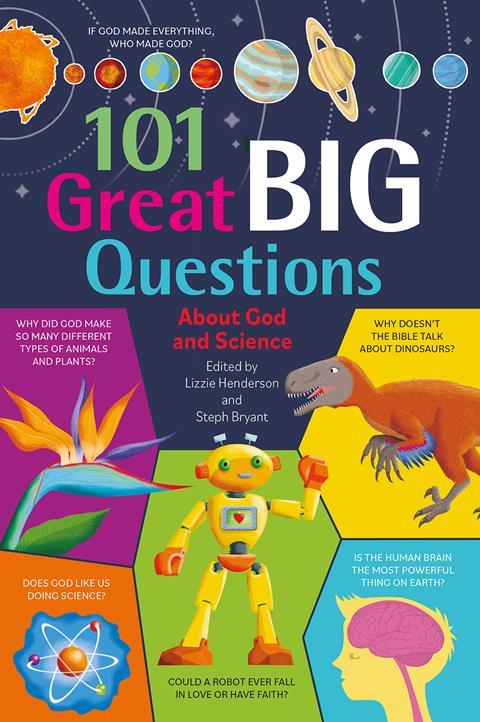For those who’ve often dodged questions about science and faith, because it all seems too overwhelming and they’d like to get it right, Christian scientist Steph Bryant explains how to encourage your children to celebrate God through science.
Could Jesus get out of a black hole? Do other animals have religions? Why doesn’t the Bible mention dinosaurs? Could humans ever become mermaids?

I’m sure that if you’ve spent more than five minutes with even a young child, you’ll have encountered all manner of incredible and surprisingly intimidating questions! Just the other day, my three-year-old godson’s unexpected bedtime question of “who do the bees make honey for?” left me, a zoologist and children’s communicator, fumbling awkwardly!
These big questions can catch us off-guard and leave us feeling utterly exasperated and way out of our depth in a murky sea of science and theology. It can be tempting to dodge the questions about science and faith, often with the best of intentions - as we seek to avoid misleading or confusing our children. But as soon as children attend school and Sunday school, if not sooner, they will be being exposed to scientific and faith-based ideas and language. If the two seem to be presenting different ideas about the world, then it’s likely children will have noticed. And if children’s questions about science and faith are typically avoided, they’re likely to have noticed this too.
It can be tempting to dodge the questions about science and faith, often with the best of intentions - as we seek to avoid misleading or confusing our children.
This commonly contributes to children deciding that they must choose between science and faith. But if we can find ways to support and guide our children as they explore their big science-faith questions, then we can ultimately help them learn to navigate the biggest challenges and opportunities of life with faith, wisdom and confidence. So, how can we support our children’s big questions when we’re not necessarily experts in theology, biblical scholarship, science or philosophy?
Start by celebrating science as a gift from God. Lots of young people are under the impression that science is replacing God as the best way to explore all our questions, with each new scientific discovery casting a threatening shadow. But what if science just helps us to learn more about our incredible universe, and the wonderful processes by which God has created and continues to create? Then instead of God shrinking with each new discovery, our view of him grows ever bigger and more awesome. So help your children to learn that it’s possible and even normal for people who love God and his word to also love and enjoy science. Model that by diving into wonder with your children: explore your local park with a magnifying glass; try out some simple science experiments; read some of the great science-faith children’s books out there (see here and here for inspiration!); and thank God for all the fun, joy and wonder that comes from what you learn!
Instead of God shrinking with each new scientific discovery, our view of him grows ever bigger and more awesome.
But of course, this will raise questions for your children. What then? Firstly, it’s important to remember that you don’t tackle these alone. The great range of science-faith resources available for children can give you some helpful starting points for engaging with your children’s big questions on their level. And don’t underestimate the number of scientists there are in your church congregation who would be thrilled to chat with you and your child about their work and their faith!
Second, it’s not about giving your child all the “right answers”. For a lot of these big questions, science can only help us to explore so far. The same with faith and scripture. Even drawing on all we know from science, faith and beyond, to build up as rich an understanding of our big questions as we can, there are some things it’s quite possible that we will never know for certain. There’s a reason some of these questions have been wrestled with for centuries! That’s ok! A lack of simple, clear answers doesn’t mean that these things aren’t worth talking about, or are “bad questions”. In a complex and uncertain world, if we can help our children to view doubts as exciting and interesting opportunities from which to learn more about themselves, God, and their world, rather than dangerous and shameful defeats, then we will set them up powerfully for a life of ever-continuing growth, curiosity and wonder.
So dive into scientific wonder with your children; welcome their big questions, dig into the plentiful resources out there to support you, and celebrate the humble “I don’t know, but let’s keep thinking about it” as part of an honest, open-minded, and curious lifelong journey with God.

































No comments yet